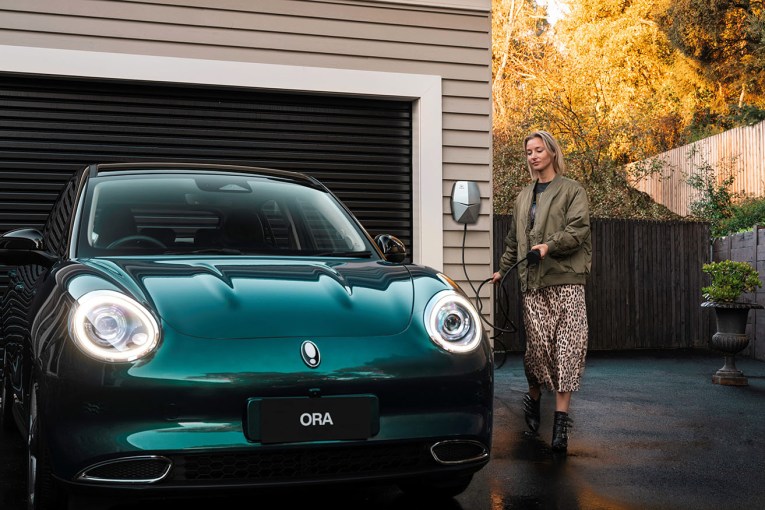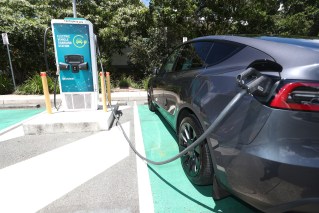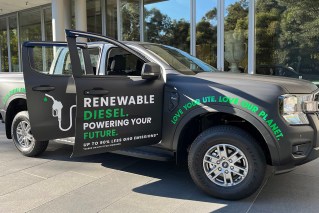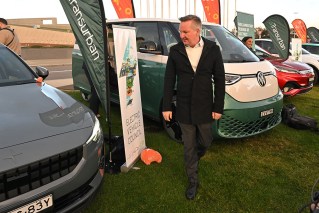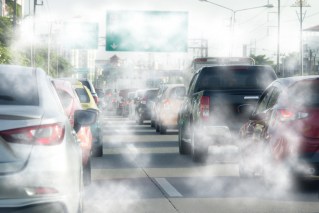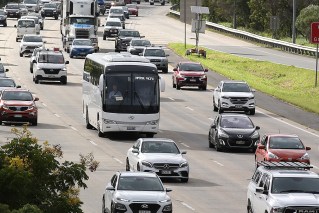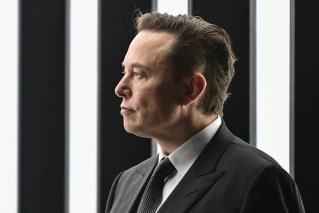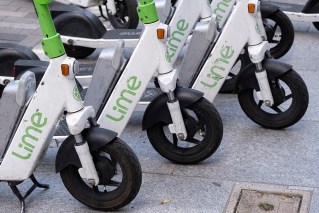EV incentives: How each state stacks up for electric cars
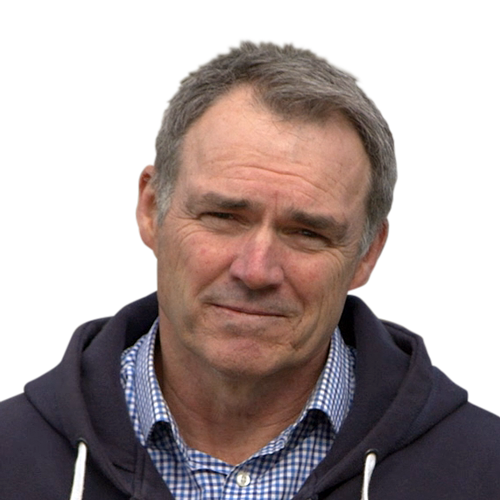
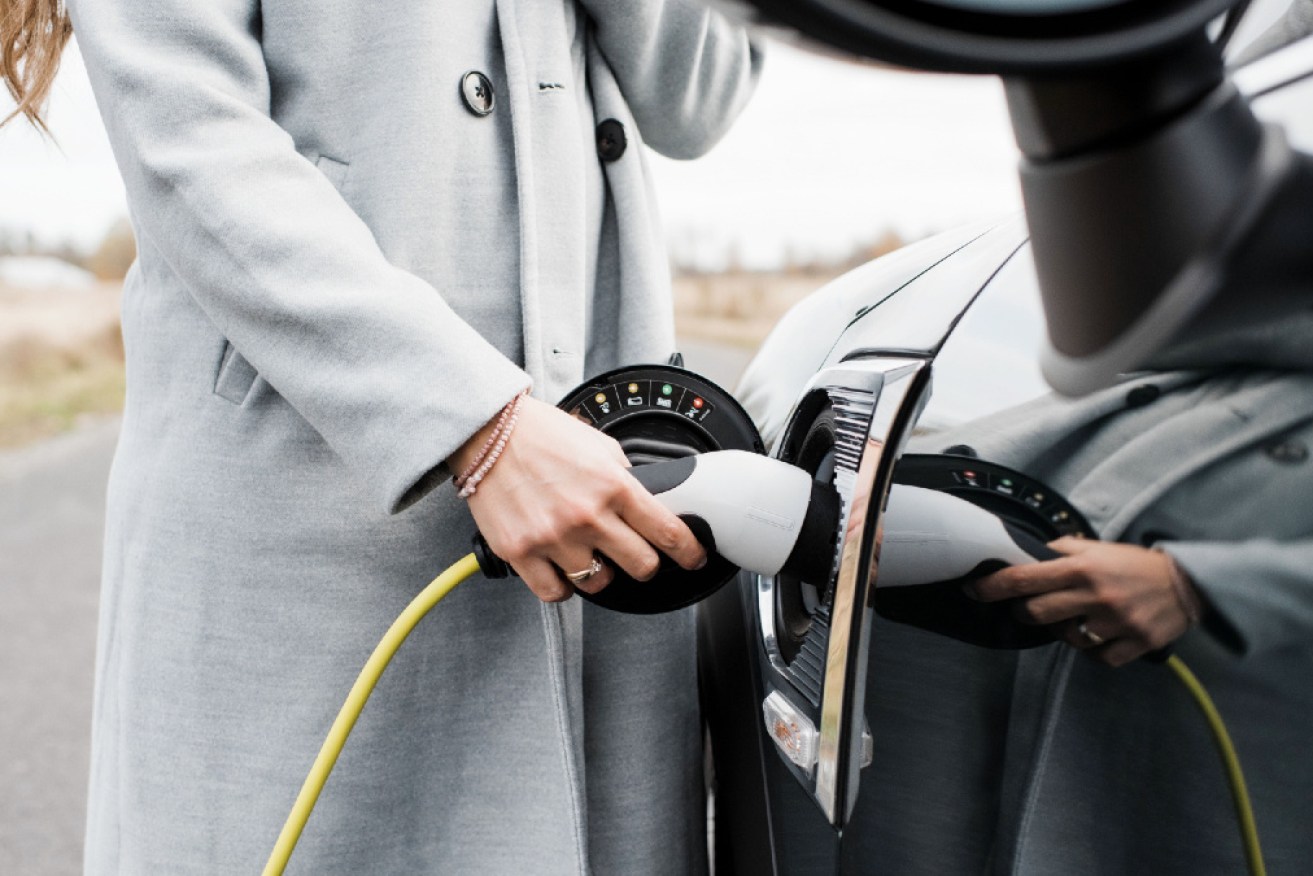
Each state and territory in Australia is taking a different tack when it comes to encouraging EV purchases. Photo: Getty
It’s official. Every Australian state and territory now offers incentives of some degree to buy an electric vehicle – but not all offers are equal.
The last domino to fall was the Northern Territory, with the Gunner Labor government announcing its electric vehicle package in July.
So which Australians are being made the sweetest offers when it comes to making the switch to zero-emissions driving?
Stand up and cheer if you live in New South Wales.
Life is tough in the Premier State right now, but there’s no better place to live in Australia if you want a good deal on an electric vehicle.
“NSW is absolutely the best,” Electric Vehicle Council CEO Behyad Jafari said.
“If I could get to be anywhere and be someone who is an electric vehicle purchaser or consumer then definitely NSW is first at the moment.”
The NSW strategy is the most complete.
There are rebates and tax breaks that add up to roughly $5000, an investment in charging infrastructure, a commitment to fully electrify the government fleet by 2030 and even a push ahead of the national construction code to ensure new suburbs and buildings can cope with mass plug-in uptake.
Not so good in the West
At the other end of the ledger, Mr Jafari said, is Western Australia, which released a strategy in May that focused on developing charging infrastructure, but provided no incentive for buyers.
“In the months since that strategy was released, other states and territories have released better and more attractive policies,” Mr Jafari said.
“That puts the spotlight back on WA.”
Mr Jafari said the ACT, which had been the EV uptake leader, remained No.2 and also praised the new initiative of the NT.
However, he is unimpressed by Victoria’s decision to offer incentives of up to $3000 on the purchase of an EV while introducing road user charges at the same time.
With EVs only worth about 1 per cent of sales, it’s too soon to be whacking prospective with a stick as well as tempting them with a carrot.
NSW won’t introduce road user charges until 2027, when EV sales should be significant enough to be biting into fuel excise.
“You want incentives and tax breaks to help create a wall of demand,” Mr Jafari said.
“What happens then is a wall of demand gets met with a wall of supply.
“Doing things like putting premature new charges on electrical vehicles … tells car companies and charging companies not to spend their money here because we don’t know what we are doing or we are hostile to EVs.”

The federal government’s lack of leadership on EVs has led to a patchwork of policies.
Mr Jafari said Queensland was an example of how quickly class-leading plans can slip down the order as EV adoption accelerates.
It was only a few years ago the Sunshine State was being lauded for its Electric Super Highway, which placed 31 fast-charging sites from Coolangatta on the NSW border to Port Douglas in the far north.
“Queensland was the first state to have an electric vehicle strategy back in 2017,” Mr Jafari explained.
“Now they are reviewing it and looking to do more. That’s smart and that’s how it works.”
States forced to go it alone on EVs
Of course, the federal government’s fundamental inaction on electrified vehicles has created the need for state and territory governments to go their own way.
Although there is some investment in chargers via the Future Fuels Fund, Mr Jafari says more should be done.
“The Future Fuels Fund is $75 million and it’s meant to go towards a whole bunch of things. Given the size of the opportunity and ambition there should be for electric vehicles that is measly,” he told TND.
And he makes the point it’s not just the Morrison government that’s been slow to act.
Australia is many years behind on CO2 targets, while the luxury car tax introduced by the Howard government in 2001 now penalises many EVs because their expensive tech drives up prices.
“Eighty or 90 per cent of the world market for light vehicles has CO2 standards in place. Australia is one of the few not to have one. The US implemented theirs in 1976 and it’s now 2021 and we don’t have one here in Australia,” Mr Jafari said.
“We get executives here from around the world and when they find that out they are just flabbergasted.”
So what is the global gold standard that Australia should emulate?
Mr Jafari points to the UK, where buyers are offered a basket of incentives including rebates, tax cuts and a purchase grant worth up to £2500 ($4700).
At the same time a fossil fuel vehicle ban has been announced for 2030. By 2035 even plug-in hybrids will be banned, meaning only pure EVs can be sold.
Plug-in vehicle sales now account for about 14 per cent of the UK market.
“They are pretty much the gold standard,” Mr Jafari said.
“What they have done provides them with the credibility to say to automotive companies, ‘You can’t sell us petrol cars any more’ and to say to petrol companies, ‘You have to install electric vehicle chargers’.”
Mr Jafari makes the point that the UK is far enough into the electrified transition Boris Johnson’s government can now wind back EV incentives as prices drop, choice opens up and sales rise.
In Australia, we’re at a much more immature point where the EV incentive schemes are only now becoming more tempting. But Mr Jafari said we’ll inevitably get to the point where the discounts dry up.
“What you’re looking for the government to do is the first 5 per cent and let the private market look after the next 95 per cent,” he said.
“Removal of incentives over time is not a bad thing. It’s a good thing.”

Sales of new petrol and diesel cars and vans will be phased out by 2030 under the UK’s “green industrial revolution”.
How the states compare
EV sales targets
NSW: More than 50 per cent new car sales by 2030; ‘vast majority’ new car sales by 2035
VIC: 50 per cent new light vehicle sales by 2030
SA: 100 per cent passenger vehicle sales by 2035.
Tax breaks
NSW: Stamp duty waiver for EVs under $78,000 (pencilled to start September 1, COVID dependent), all other EVs and plug-in hybrids from July 1, 2027 or when EVs make up at least 30 per cent of new car sales
VIC: Luxury low-emission vehicles avoid luxury duty
QLD: Hybrids and EVs pay lower duty
TAS: Two-year stamp duty waiver on EVs (July 2021 to July 2023)
NT: $1500 cut in stamp duty waiver for five years from July 2022
ACT: Stamp duty waiver for all vehicles emitting under 130g CO2/km.
Savings on vehicle price
NSW: $3000 rebate for first 25,000 EVs priced under $68,750 sold from September 1
Vic: $3000 rebate for 4000 vehicles in first round; more than 20,000 subsidies in total
ACT: Interest-free loans up to $15,000.
Free or discount registration
VIC: $100 discount
TAS: Two years free for rental cars
NT: Free registration for five years from July 2022
ACT: Two years free.
Investment in infrastructure
All states and territories: Yes.
Government fleet use
NSW: Fully electric fleet by 2030
VIC: 400 EVs in fleet in by 2023
QLD: 288 EVs by 2022
WA: 25 per cent of fleet by 2026-26
SA: New fleet vehicles must be plug-in electric where appropriate
TAS: 100 per cent electric by 2030
NT: 200 EVs in fleet by 2030
ACT: From 2020-21 all new fleet vehicle purchases are zero emissions where appropriate.
Building readiness
NSW: Precincts and new buildings constructed and wired to be EV ready (no date specified)
VIC: Under consideration
SA: Under consideration
NT: Grants scheme to fund home and business installation
ACT: Vehicle and parking access general code to promote ZEV uptake.
Road user charge introduction
NSW: Phased in when EVs are 30 per cent of new vehicle sales or July 1, 2027
VIC: July 1 2021
SA: Proposed from July 1 2022 (pending review)
NT: Under review.
